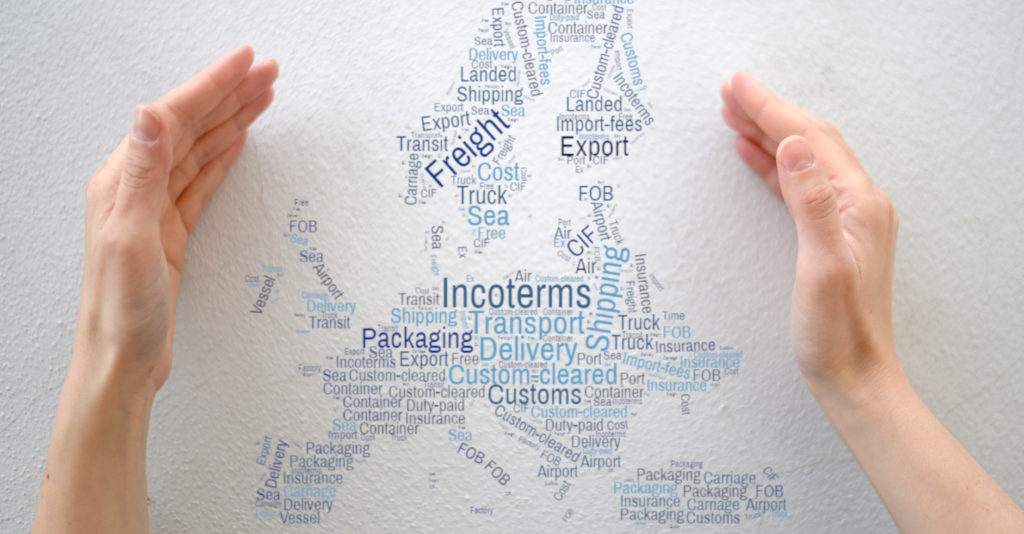Imported on Consignment
Imported on Consignment
Valuation of Merchandise Imported on Consignment
Generally, the appraised value of all merchandise imported into the United States is the transaction value of the goods. The transaction value of imported merchandise is the price actually paid or payable for the merchandise when sold for exportation to the United States, plus amounts equal to:
A. The packing costs incurred by the buyer.
B. Any selling commission incurred by the buyer.
C. The value, apportioned as appropriate, of any assist.
D. Any royalty or license fee that the buyer is required to pay, directly or indirectly, as a condition of the sale.
E. The proceeds of any subsequent resale, disposal, or use of the imported merchandise that accrue, directly or indirectly, to the seller.
In-Depth Coverage: Customs Valuation
However, where transactions do not involve the payment of a price they cannot be regarded as sales under the General Agreement on Tariffs and Trade (GATT). For goods imported on consignment, the goods are shipped to the country of importation not as a result of a sale, but with the intention that they would be sold for the account of the supplier, at the best price obtainable. No sale for exportation occurs between the exporter and the importer in the United States but rather, the merchandise is consigned to the importer.
In order for transaction value to be applicable for appraisement purposes, there must be a bona fide sale of merchandise for export to the United States.
CBP has consistently stated that transactions involving goods shipped on consignment do not constitute bona fide sales and cannot be appraised pursuant to transaction value.
In-Depth Coverage: Country of Origin
- Country of Origin of Imported Merchandise
- Customs Ruling: Country of Origin
- Country of Origin: Food Products
- Country of Origin: Chemical and Pharmaceutical Products
- Country of Origin & Country of Manufacture: CBP vs. FDA
- Country of Origin: Substantial Transformation or Country of Assembly Test
- Country of Origin and Free Trade Agreement
- Country of Origin and Section 301
What is bona fide sale?
In order for transaction value to be applicable for appraisement purposes, there must be a bona fide sale of merchandise for export to the United States.
Though several factors may indicate whether a bona fide sale has occurred, no single factor is decisive. CBP makes each determination on a case-by-case basis and will consider such factors as whether
- the purported buyer assumed the risk of loss and acquired title to the imported merchandise,
- the potential buyer paid for the goods,
- the roles of the parties and circumstances of the transaction indicate that the parties are functioning as buyer and seller,
- the buyer provided or could provide instructions to the seller,
- the buyer was free to sell the transferred item at any price he or she desired, selected or could select its own downstream customers without consulting with the seller, and
- the buyer could order the imported merchandise and have it delivered for its own inventory.
For example, a contract indicates that the prices for the imported merchandise are “F.O.B.” or “Free on Board”, which means that the seller fulfills his obligation to deliver when the goods pass the ship’s rail at the named port of shipment. Consequently, the buyer assumes all risk of loss or damage to the goods from that point. The fact that the Importer assumes the risk of loss for the imported merchandise when the goods pass the ship’s rail points in favor of finding that bona fide sales for exportation exist.
In the event the merchandise cannot be appraised on the basis of transaction value, the secondary bases are considered in the following order:
- Transaction Value of Identical Merchandise
- Transaction Value of Similar Merchandise
- Deductive Value
- Computed Value
- Values if Other Values Cannot be Determined
The importer may request the reversal of Deductive Value and Computed Value at the time the entry summary is filed.
Guidance on customs & logistics solution for traditional and e-commerce importers and exporters
Importer Security Filing (ISF)
An ISF is required when cargo (ocean only) laden on vessel at a foreign port is destined for shipment into the U.S. Under ISF rule, some details regarding cargo must be transmitted to the CBP at least 24 hours before goods are loaded onto the vessel, or at least 24 hours prior to the departure to the U.S.
Freight Forwarding
Looking for a freight forwarding partner? To move your cargo from its current location through customs to its final destination we will partner with you to find the best way for your business. Whatever your transportation, logistics or customs clearance needs, we will do our best to customize a solution for your needs.
Customs Clearance
The goods imported into the U.S. are required to be declared to CBP. Our customs broker will help you stay in compliance with customs laws and regulations and clear your goods quickly and efficiently with our electronic Automated Commercial Environment (ACE) and Automated Broker Interface (ABI) Single Window System
Warehousing & Distribution
Our warehouse facility offers great potential for serving as a regional hub with over 145,000 SF storage capacity close to Los Angeles Airport & Los Angeles/Long Beach Sea port. With our extensive experience in freight services, your import/export cargo will be handled quickly and effectively.
Non-resident Importer Program
If you want to sell your products in U.S. marketplaces, but you are a business owner located outside of the U.S. and do not have an entity or presence in the U.S., you need to be established as a Foreign Importer of Record before your products can be imported into the U.S. We can help you.
Section 321 Entry
Section 321 entry allows importing free of duty and tax for shipments imported by one person on one day having a fair retail value in the country of shipment not more than $800. We provide our resident and non-resident clients with dedicated ACE eManifest solutions for Section 321 entry of all modes of transportation.
E-Commerce
The Internet has made it easy to find and purchase items from almost anywhere in the world. Our e-commerce experts will help you find the right solution for your international transportation, customs clearance, and delivery to your final destination. We also provide value-added repackaging, warehousing and distribution services.
In-Depth Coverage: Importing Medical Device
Quick Link To U.S. Customs & Import Requirements
FDA-Regulated Products and Import Requirements
- What is Food Safety Modernization Act (FSMA)?
- Prior Notice of Imported Foods
- Food Facility Registration
- Risk-Based Preventive Controls for Human Food
- Risk-Based Preventive Control for Animal Food
- Standards for the Growing, Harvesting, Packing, and Holding of Produce for Human Consumption
- What is Foreign Supplier Verification Program (FSVP)?
- Protect Food against Intentional Adulteration
- FDA Regulated Product in Foreign Trade Zone (FTZ)
- Entry Review Process for FDA Regulated Products
- Country of Origin VS Country of Manufacture
- Foods Regulated by FDA or USDA: What is the Difference?
- Label and Labeling Claims for Conventional Food and Dietary Supplements
- What is USDA Country of Origin Labeling (COOL)?
- Import for Export of FDA Regulated Products
- FDA Regulated Products in Personal Baggage or Sending by Mail or Courier
- International Mail Facility (IMF) and FDA Regulation
- Importing Biological Product Regulated by CBER
- Importing Cosmetics and Voluntary Cosmetic Registration Program (VCRP)
- Importing Drugs into the U.S.
- Importing OTC Drugs into the U.S.
- Importing Veterinary Drugs into the U.S.
- Importing Tobacco Products into the U.S.
- Importing Medical Devices into the U.S
- Importing Food Products into he U.S.
- Importing Radiation-Emitting Products into the U.S.
Customs Clearance and Import Requirements
- Entry of Imported Merchandise
- What is Section 321 Entry?
- What is Automated Commercial Environment (ACE)
- What is an Automated Broker Interface (ABI)?
- Who is Ultimate Consignee?
- What is Non-Resident Importer Program?
- Country of Origin of Imported Merchandise
- What is the Country of Assembly?
- What is the FDA's Country of Manufacture?
- Marking of Country of Origin on U.S. Imports
- What is Customs Bond?
- Reconciliation Prototype and Bond Rider
- Who Needs a Customs Broker?
- What is Customs Ruling Program?
- Classification of Imported Goods
- How is imported merchandise appraised?
- What are Import Quotas?
- What are Trade Remedy Duties?
- Antidumping Duty (AD) and Countervailing Duty (CVD)
- What is Foreign Trade Zone (FTZ)?
- What is Importer Security Filing (ISF)?
- What is Temporary Importation under Bond (TIB)
- What is In-Bond Process?























